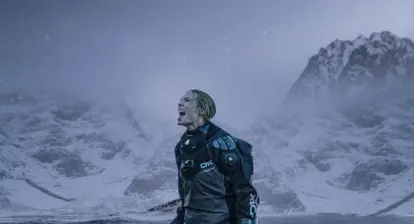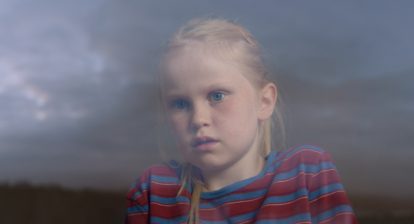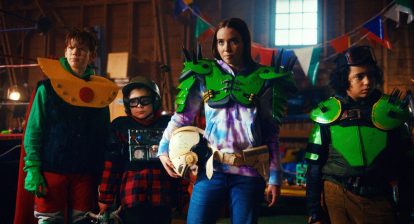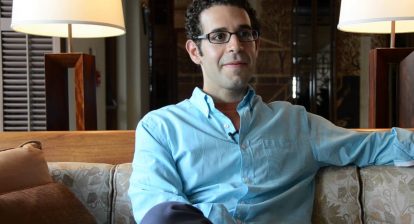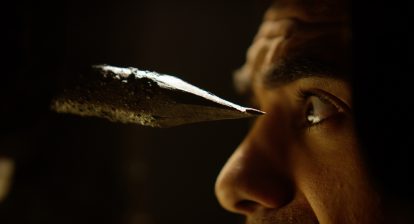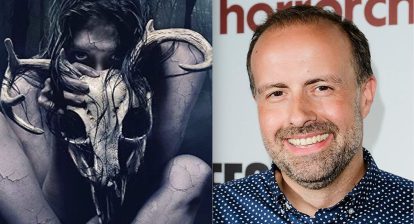Cranked Up Films has become well-known in the genre world for releasing high-concept horror films, a few notable films being Nightmare Cinema, Porno and Extra Ordinary. Their latest title, Double Walker, is no different, telling the story of a young ghost who haunts her cold Midwestern hometown, trying to piece together the horrific flashes of memories from her past. One by one she kills the men she believes were responsible for her death, though her plan is derailed when she meets Jack, a kind movie theater usher who inadvertently intercepts as she’s stalking her next victim. While Jack takes her in and offers her a glimpse at a normal life, her desire to avenge her own murder lingers on. There are many elements that stand out about this film, one of them being the score by composer Mark Hadley, whom does a great job of accentuating the lead’s tortured emotions. In the below exclusive Q&A, Mark talks more in depth about this. Double Walker is now available on digital platforms. You can listen to Mark’s score here.
Wicked Horror: How did you get involved with Double Walker?
Mark Hadley: I got involved with Double Walker when the co-writer and director Colin West sent me the script and asked if I’d be interested in composing the score. We’ve worked on several projects together.
WH: The first few minutes of the film, the music almost tells its own story. Filling in the places where there is no speaking. Did you score this sequence differently because there was so much emphasis placed on the score?
MH: Yes definitely. We wanted the opening to feel like the Double Walker version of an overture. To me, the whole essence of the film is present in this first piece of music and my hope is that it sets up the rest of the film.
Guess What?! Wicked Horror TV Has Indie and Classic Horror Available to Stream for Free!

WH: The ballerina music box is significant in the film, did you modify those melodies or was that music solely from the actual box?
MH: That music came directly from the box. We considered composing something different but ultimately decided it was perfect as it was.

WH: What was the most challenging scene in Double Walker to score? Why?
MH: The most challenging scene was the first murder scene. The way that scene is edited and filmed, it leaves so much space and I had to be very careful to not do too much in that space but just enough to make it feel unsettling. Sometimes the most challenging scenes are the ones where the music could easily be redundant with what the visuals are telling us.
WH: There is a reoccurring bell noise throughout the film, what did you use to create this?
MH: I used a lot of metallic percussion and bell-type instruments on this score. There are gongs, rin, almglocken (swedish cowbell,) and vibraphone, all performed with experimental techniques like holding an electric toothbrush to the metal create a drone or using a violin bow.
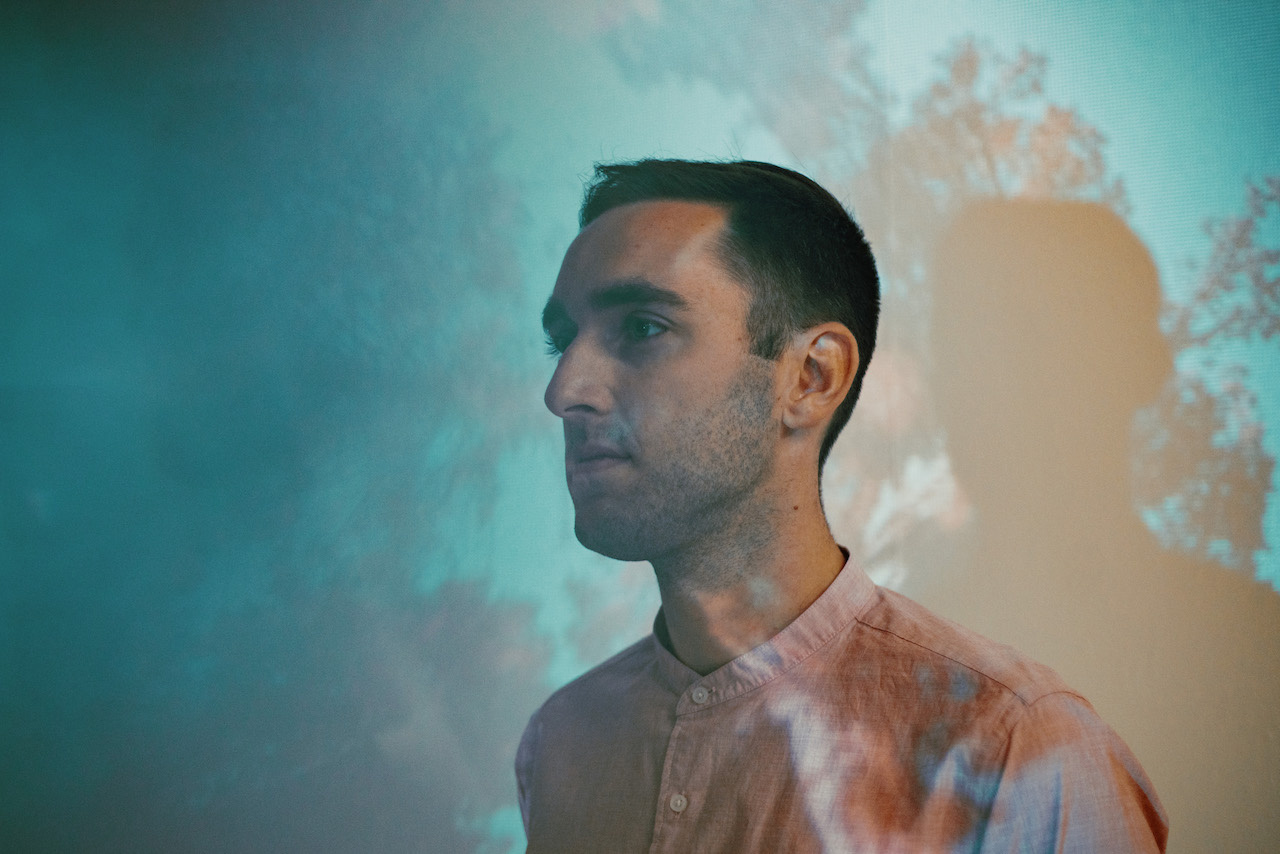
Mark Hadley
WH: What sort of theme did you give the Ghost?
MH: Ghost’s theme centers around the paradox of her closeness and distance to the human experience. I chose 2 notes on piano which are as close as you can get, a half-step or minor second interval, and displaced one of the notes by an octave to create that distance, so what you get is this interval of a major 7th – the primary theme of Ghost.
WH: You have said you were inspired by a wintery aesthetic. What exactly does a wintery aesthetic sound like?
MH: To me, it sounds cold and metallic. Colors of white and blue, sounds that maybe don’t have a clear pitch. That is in this context of a ghost story, though. There are certainly contexts where a wintery aesthetic could be warmth by the fireplace, positive holiday spirits… but that’s not this film. I did try to capture that warmth a bit in the way I recorded the piano though.
WH: Did you score the film in chronological order or did you jump around? If not, in chronological order, what did you score first?
MH: It was a bit of a hybrid because in the editing process, the film was still moving sections and scenes around and playing with the non-linear aspect so things were always changing. We definitely started with the first piece though because that scene was always a bit more set in stone than the rest of the film.


